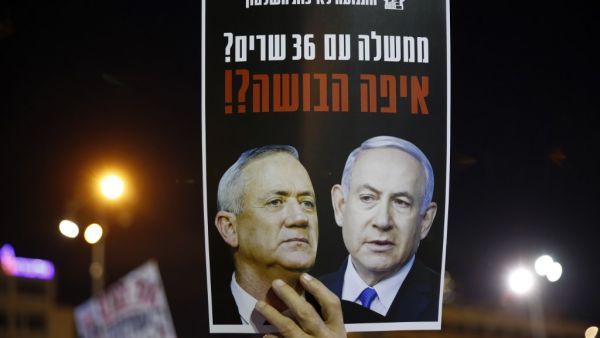Israel's attorney general advised the country's top court Tuesday that he sees no grounds for striking down a power-sharing deal struck by Prime Minister Benjamin Netanyahu and his rival Benny Gantz.
The opinion gave a powerful voice of support to Netanyahu and Gantz as the Supreme Court debates a series of legal challenges to their agreement.
A group of nonprofit organisations have asked the court to strike down the deal - a move that would likely plunge the country into an unprecedented fourth election in just over a year.
The court this week looked at two questions: whether Netanyahu can form a new government while facing criminal indictments on corruption charges, and whether his coalition deal with Gantz - which will require changes in existing law - is illegal.
In his opinion, Attorney General Avichai Mandelblit said there were no grounds for overturning the coalition agreement. He said legal precedent only allows the court to intervene in extreme cases.
Although the opinion is merely advisory, his position as the country's attorney general carries considerable weight with the court.
Netanyahu and Gantz, a former army chief, battled to a stalemate in three consecutive elections in under a year.
To break the impasse, the two agreed to a deal under which Netanyahu would serve as prime minister for 18 months, with Gantz in the new post of "alternate" prime minister. They would switch jobs for the following 18 months.
The new post is critical for Netanyahu. Israeli law requires all cabinet ministers, except for the prime minister, to resign if charged with a crime.
Under the deal, the alternate prime minister is also not required to step down. This would allow Netanyahu to remain in office throughout his trial, using the post to lash out at prosecutors and rally public support.
The agreement also gives Netanyahu veto power over key judicial appointments, giving him influence over choosing the people who could deal with any appeal if he is convicted.
Last week, Mandelblit advised the court that while Netanyahu's indictments "raise significant problems", there was no legal basis for barring him from office.
The court is expected to hand down a ruling on the two sets of petitions before Thursday's deadline for Netanyahu and Gantz to form a new government.
If the court rules annuls the coalition agreement or bars Netanyahu, it would likely trigger a fourth parliamentary election and deepen the country's political paralysis.
This article has been adapted from its original source.








